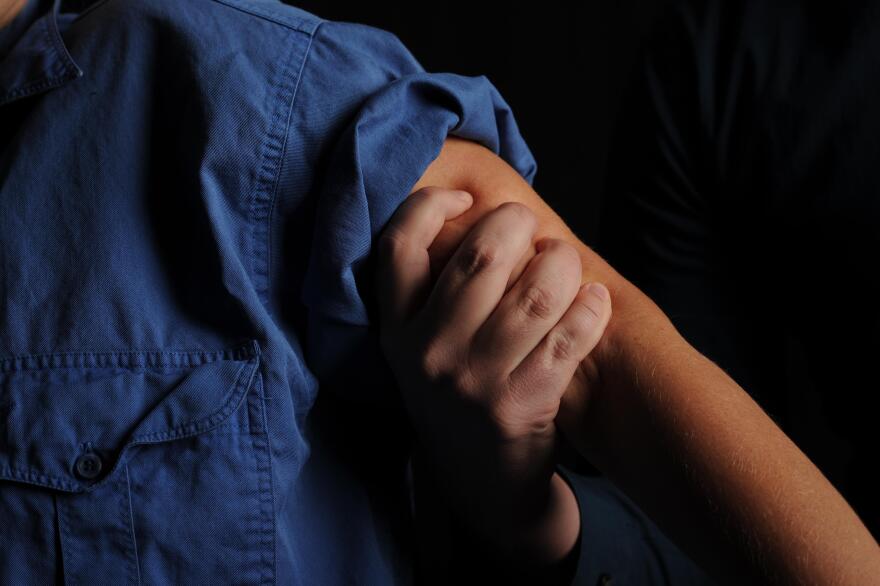The weeks of stay-at-home orders have created space for some families to spend more time together than ever before. This could mean more bonding, family meals and joyful activities. But for others it makes for a dangerous situation.
Experts warn that movement restrictions can mean more frequent and severe incidents of domestic violence and child abuse. The isolation, disrupted routines and economic struggles are all conditions that child welfare advocates say can lead to more violence in the home, creating another public health crisis alongside the coronavirus pandemic.
What the virus is really revealing is how much preexisting inequality there already was in our state and across the country. - Anna Gassman-Pines
Host Frank Stasio talks about it with Anna Gassman-Pines, an associate professor of public policy, psychology and neuroscience at Duke University. Gassman-Pines shares her ongoing research on hourly service workers and the stress they are facing because of this pandemic — and what that could mean for the children in their homes.
“What we know from our prior work on more typical economic downturns — work that we and other social scientists have done — is that when there are large job losses in communities, child maltreatment rates go up. … That kind of increased stress and strain on families can really lead to difficult circumstances that can lead to child maltreatment,” says Gassman-Pines.
Domestic violence legal expert Amily McCool joins the conversation to illuminate how courts have adjusted to COVID-19 and how that is affecting domestic violence survivors. McCool is a managing partner for Scharff Law Firm who specializes in representing survivors of domestic violence. She is also the former legal and policy director of the North Carolina Coalition Against Domestic Violence.
One in four women and one in seven men will experience domestic violence in their lifetime. And with those kinds of numbers, there's not a listener out there who isn't impacted, even if they don't know it. - Amily McCool
“Having to delay resources and support can truly be physically and emotionally harmful and cause such an amount of trauma for [survivors] that we are going to really need to be ready to provide resources when these stay at home orders are lifted,” the attorney warns.
Plus, licensed social worker Kathy Douglas talks about how she is navigating the move to telehealth and the struggles of connecting her clients to services. Douglas is the owner of Stepping Forward Counseling Services in Lincolnton.
“Lincolnton is still considered a rural community. Our shelter is very small and can only take so many folks at a time. So that's making it difficult to get resources for folks. You tell someone to call, and then there's no place for them to go,” she explains.
Even if that person is willing to leave the home, there's no place for them to go. - Kathy Douglas
If you or your family need support, you can call the National Domestic Violence Hotline at 1-800-799-SAFE. The North Carolina Coalition Against Domestic Violence can also help connect you to local resources.





